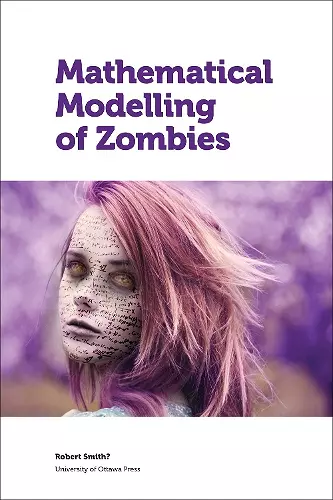Mathematical Modelling of Zombies
Robert Smith editor Andrew Cartmel editor
Format:Paperback
Publisher:University of Ottawa Press
Published:28th Nov '14
Should be back in stock very soon

This non-fiction paperback, "Mathematical Modelling of Zombies" from Robert Smith & Andrew Cartmel, was published 28th November 2014 by University of Ottawa Press.
- Short-listed for Eric Hoffer Book Award 2015 (United States)
ISBN: 9780776622101
Dimensions: 254mm x 178mm x 15mm
Weight: 710g
468 pages